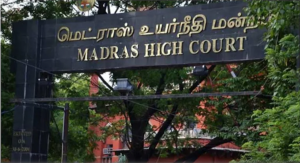 The Madras High Court in the case of SRI GUBERAN STEELS VERSUS THE ASSISTANT COMMISSIONER (ST) THUDIYALUR CIRCLE, COIMBATORE vide Order No.- W.P.Nos. 1251, 1255 and 1258 of 2024 And W.M.P.Nos. 1310, 1300, 1301, 1302, 1303, 1307 of 2024 dated 22.01.2024, quashed the assessment order and held that the defect was not cured due to the availability of records in the custody of the central GST authority.
The Madras High Court in the case of SRI GUBERAN STEELS VERSUS THE ASSISTANT COMMISSIONER (ST) THUDIYALUR CIRCLE, COIMBATORE vide Order No.- W.P.Nos. 1251, 1255 and 1258 of 2024 And W.M.P.Nos. 1310, 1300, 1301, 1302, 1303, 1307 of 2024 dated 22.01.2024, quashed the assessment order and held that the defect was not cured due to the availability of records in the custody of the central GST authority.
The petitioner/assessee assailed the assessment order in respect of financial years 2019–20, 2020–21, and 2021–22, respectively. The petitioner stated that he is a registered person under applicable GST laws. Pursuant to a surprise inspection, it is stated that the petitioner received an intimation in Form DRC-01A and a show cause notice in Form DRC-01. The petitioner replied to the intimation by pointing out that the relevant books are not available with the petitioner as regards the defect, which pertains to the difference in outward taxable turnover between GSTR-3B, GSTR-1, and e-way bills.
In a subsequent reply to the personal hearing notice, the petitioner reiterated that the books of accounts, e-way bills, and invoices are with the Superintendent, Office of the Assistant Commissioner of GST, and Central Excise. Therefore, the petitioner is unable to produce documentary evidence in support of the movement of goods and payment details. The assessment orders were issued.
The petitioner contended that the claim relating to circular trading could not be dealt with by the petitioner on account of the non-availability of relevant documents to establish the purchase, movement of goods, and payments. The petitioner informed the respondent about their non-availability. The petitioner has subsequently received the relevant documents; the petitioner should be provided an opportunity to establish that the purchases were genuine.
The department contended that an order is a reasoned order issued after taking into consideration the petitioner’s replies.
The Court observed that that a composite order of assessment was issued with regard to four defects, and the documents on record disclose that the non-availability of records, on account of such documents being in the custody of the Central GST authority, undoubtedly impacted the petitioner’s ability to respond to two defects.
The court held that, solely with a view to providing an opportunity to the petitioner to respond to these defects, the assessment order calls for interference.
The court quashed the assessment order and remanded the matter for reconsideration.
The court directed the petitioner to submit all relevant documents within a maximum period of three weeks from the date of receipt of a copy of the order. Upon providing a reasonable opportunity to the petitioner after receipt of such documents, the assessing officer shall issue fresh assessment orders within a maximum period of four months.
To read the complete judgment 2024 Taxo.online 96



